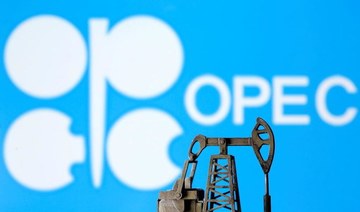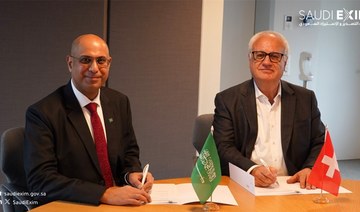DUBAI: OPEC+, the oil producers alliance led by Saudi Arabia and Russia, has agreed a schedule of output increases to meet growing demand as the global economy recovers from the pandemic recession.
A special meeting arranged in Vienna endorsed the plans, which will see an extra 400,000 barrels a month come on to world markets from the beginning of next month, and will allow some producers — including Saudi Arabia and the UAE — to increase the baseline from which they calculate production.
The deal will also extend the current OPEC+ alliance beyond its original term next April until at least the end of 2022. “OPEC+ is here to stay,” Prince Abdul Aziz bin Salman, the Saudi energy minister, told journalists after the deal was announced.
We are working with the UAE, and we see eye to eye with them.
Prince Abdul Aziz bin Salman, Saudi energy minister
On the negotiations that ended the deadlock of last week when an OPEC+ meeting was canceled, the prince said: “Consensus-building is an art.”
The successful conclusion will allay suggestions in some quarters of a split in OPEC+ ranks. Suhail Al-Mazrouei, the energy minister of the UAE, said: “I can confirm the UAE is committed to OPEC+ and will always work with it and within it. We’ll always remain very good friends.”
Prince Abdulaziz underlined the unity in the group when he read a message from Alexander Novak, deputy prime minister of Russia and OPEC+ co-chairman, which stated that Russia was “ready to support anything” the Saudi minister said to the meeting.
“There is no way to demonstrate trust any more than this,” the prince said.
Opinion
This section contains relevant reference points, placed in (Opinion field)
Under the new terms, output will increase by 400,000 barrels per month until the full production cut of 5.8 million barrels is returned to global markets.
The regime of monthly meetings of OPEC+ ministers to monitor global markets will continue until the end of next year, but the producers hope to be able to phase out all cuts by September 2022, OPEC+ said.
In addition, the baseline calculations for production adjustment will be reassessed, and new ones will take effect from next May.
The UAE will see its baseline rise from 3.17 million barrels per day (bpd) to 3.5 million bpd — satisfying its main concern about the new proposals. Saudi Arabia and Russia will both see their baselines rise from 11 million bpd to 11.5 million bpd. Iraq and Kuwait will also be allowed to produce more.
OPEC+ said that there was an “ongoing strengthening of market fundamentals, with oil demand showing clear signs of improvement and OECD stocks falling as the economic recovery continued in most parts of the world as vaccination programs accelerated.”
I can confirm the UAE is committed to OPEC+.
Suhail Al-Mazrouei, UAE energy minister
The meeting also stressed the “critical importance” of adhering to full conformity with the new levels, and compensating by the end of September for any past overproduction. Compliance in June was once again historically high, at 113 percent.
The Saudi and UAE ministers stressed that they were working together on the strategy to advance energy transition via the adoption of renewables and other cleaner fuels and technologies. “We are working with the UAE, and we see eye to eye with them. We’re going about it in exactly the same way,” Prince Abdulaziz said.
The deal — which ends a period of uncertainty in global oil markets — was welcomed by energy experts.
Robin Mills, chief executive of Qamar Energy consultancy, told Arab News: “This is a good deal for OPEC+. It holds the deal together and addresses the baseline issue for the future from all the countries that had issues. The countries that didn’t get baseline increases probably couldn’t have used them anyway.”
International oil markets last traded on Friday, with Brent ending at $73.30 per barrel. The next OPEC+ meeting, the 20th time the alliance ministers have met, will take place on Sept. 1.























